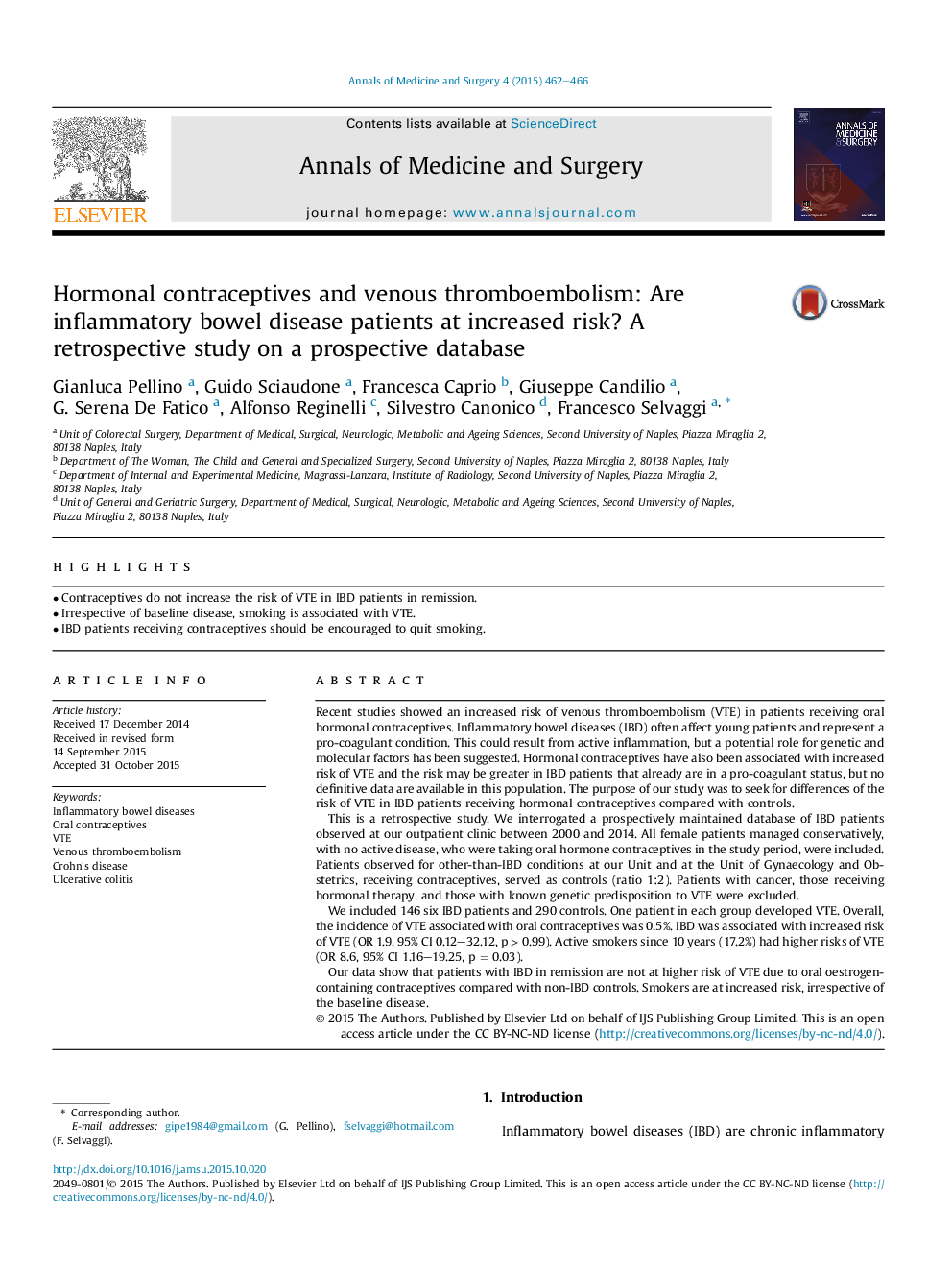| کد مقاله | کد نشریه | سال انتشار | مقاله انگلیسی | نسخه تمام متن |
|---|---|---|---|---|
| 4195333 | 1608925 | 2015 | 5 صفحه PDF | دانلود رایگان |
• Contraceptives do not increase the risk of VTE in IBD patients in remission.
• Irrespective of baseline disease, smoking is associated with VTE.
• IBD patients receiving contraceptives should be encouraged to quit smoking.
Recent studies showed an increased risk of venous thromboembolism (VTE) in patients receiving oral hormonal contraceptives. Inflammatory bowel diseases (IBD) often affect young patients and represent a pro-coagulant condition. This could result from active inflammation, but a potential role for genetic and molecular factors has been suggested. Hormonal contraceptives have also been associated with increased risk of VTE and the risk may be greater in IBD patients that already are in a pro-coagulant status, but no definitive data are available in this population. The purpose of our study was to seek for differences of the risk of VTE in IBD patients receiving hormonal contraceptives compared with controls.This is a retrospective study. We interrogated a prospectively maintained database of IBD patients observed at our outpatient clinic between 2000 and 2014. All female patients managed conservatively, with no active disease, who were taking oral hormone contraceptives in the study period, were included. Patients observed for other-than-IBD conditions at our Unit and at the Unit of Gynaecology and Obstetrics, receiving contraceptives, served as controls (ratio 1:2). Patients with cancer, those receiving hormonal therapy, and those with known genetic predisposition to VTE were excluded.We included 146 six IBD patients and 290 controls. One patient in each group developed VTE. Overall, the incidence of VTE associated with oral contraceptives was 0.5%. IBD was associated with increased risk of VTE (OR 1.9, 95% CI 0.12–32.12, p > 0.99). Active smokers since 10 years (17.2%) had higher risks of VTE (OR 8.6, 95% CI 1.16–19.25, p = 0.03).Our data show that patients with IBD in remission are not at higher risk of VTE due to oral oestrogen-containing contraceptives compared with non-IBD controls. Smokers are at increased risk, irrespective of the baseline disease.
Journal: Annals of Medicine and Surgery - Volume 4, Issue 4, December 2015, Pages 462–466
